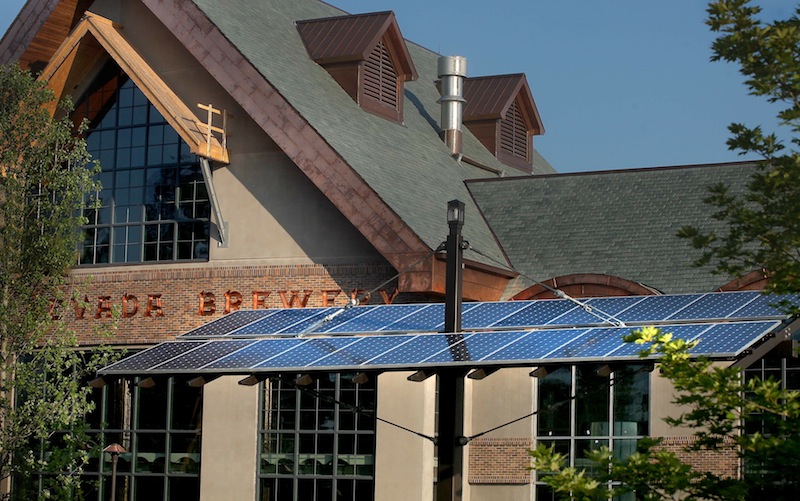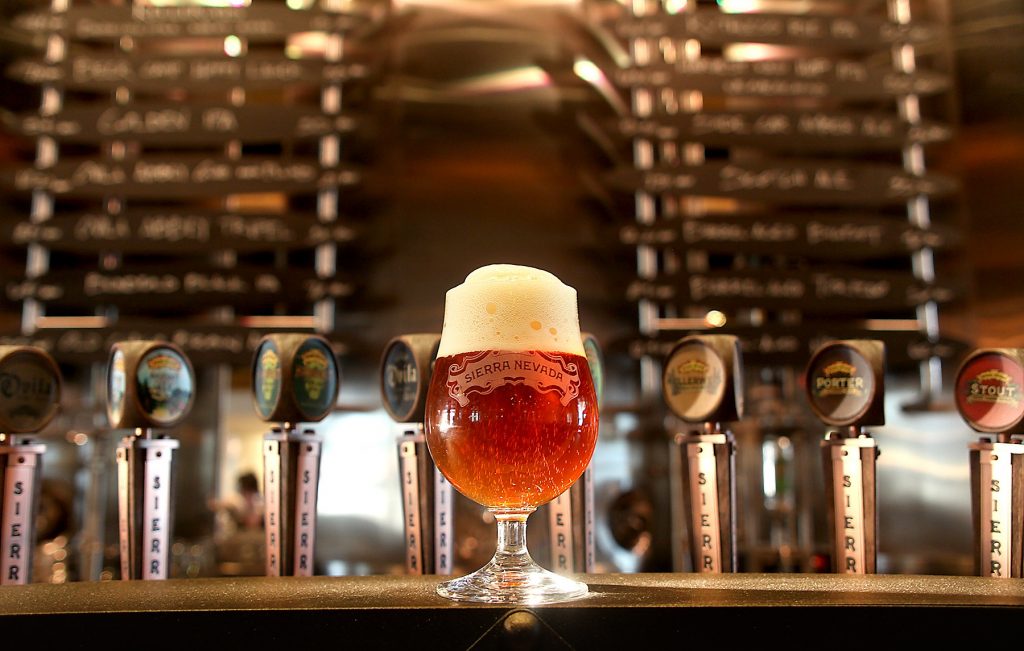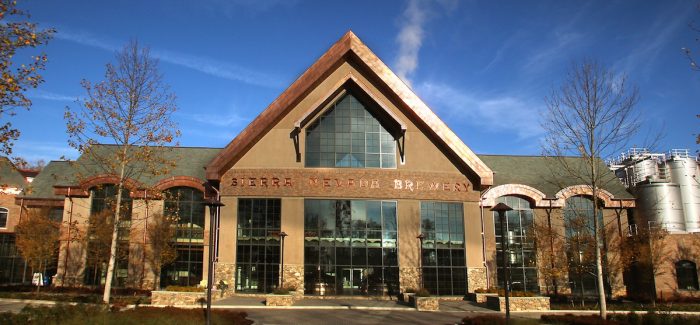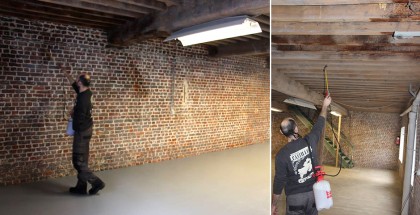Sierra Nevada’s Super Eco-Friendly Brewery
All breweries strive to be the best, but no brewery may have a more eco-friendly facility than Sierra Nevada’s brewery in Mills River, North Carolina. The eastern US location, which opened in the fall of 2014, recently received Leadership in Energy and Environmental Design (LEED) certification at the highest level, Platinum. Additionally, Sierra Nevada is currently the only United States commercial brewery to achieve LEED Platinum certification.
First, LEED is a global rating system of environmentally responsible buildings. The United States Green Building Council (USGBC) certify all types of US buildings including homes, neighborhood developments, and stadiums. When a structure or development is approved to be LEED certified, it earns a rating of Certified, Silver, Gold, and Platinum, based on a score it receives. The importance of having your building LEED certified, according to the LEED website:
“Means healthier, more productive places, reduced stress on the environment by encouraging energy and resource-efficient buildings, and savings from increased building value, higher lease rates and decreased utility costs.”
Furthermore, LEED certified buildings reduce less greenhouse gases while using less water and energy.
(More: 6 Reasons Sierra Nevada’s New NC Taproom Will Impress You)
From the beginning, Sierra Nevada followed LEED guidelines as much as possible in designing the Mills River location. At completion, six of the most eco-friendly aspects of the new facility include:
- Over 80 percent of waste diverts from landfills.
- Energy efficient windows and doors, insulation, and concrete panels maximize natural light, keep temperatures at an even level, and noise levels low.
- Approximately 2,200 photovoltaic solar panels are around the campus, including nine sleek “tree-like” solar panels.
- Methane biogas recovers from wastewater and turns it into electricity.
- The facility captures and reuses storm water.
- Through the improvements and new equipment, Sierra Nevada uses 3.5 gallons of water to make 1 gallon of beer (average is 5 gallons of water to 1 gallon of beer).

Upon receiving its certification, Sustainability Manager Cheri Chastain at Sierra Nevada discussed in a June press release the importance of responsibility. “As we established roots on the East Coast, it was important for us to live up to our commitment to responsible growth, so early on we decided that we would pursue LEED certification for our new brewery. Our design and construction innovations helped with LEED certification, but most of them were things we would have done anyway simply because they were the right things to do. Earning this LEED Platinum certification reinforces those decisions and validates the time our team put into this project, but the real reward is a more sustainable brewery for generations to come.”
Currently, no other commercial breweries are in structures certified as LEED Platinum. To see which breweries are certified or in progress, see below a partial list from USGBC:
Platinum
- Sierra Nevada Brewing Company (Mills River, North Carolina) – 2016
Gold
- Black Star Co-op Pub & Brewery (Austin, Texas) – 2012
- Gunther Brewery at Brewer’s Hill (Baltimore, Maryland) – 2014
- Mother Earth Brewing (Kinston, North Carolina) – 2013
- Smuttynose Brewing Company (Hampton, New Hampshire) – 2016
Silver
- BJ’s Restaurant and Brewhouse (Boulder, Colorado) – 2014
- Brewery Vivant (Grand Rapids, Michigan) – 2012
- Motor Row Brewing (Chicago, Illinois) – 2016
- Urban Chestnut Brewing Company (St. Louis, Missouri) – 2014
Certification in Progress
- 21st Amendment Brewery (San Leandro, California)
- Brewery Ommegang (Cooperstown, New York)
- Catskill Brewing (Livingston Manor, New York)
- Flathead Lake Brewing (Big Fork, Montana)
- Grain Belt Brewery (Minneapolis, Minnesota)
- Kona Brewery (Kaulua-Kona, Hawaii)
- New Belgium Brewing (Asheville, North Carolina)
- Ninkasi Brewery (Eugene, Oregon)
- SpringLoaded Brewery (Sand Springs, Oklahoma)
In the list above, UC Davis Brewery, Winery, and Food Science Facility is absent. This structure became the first LEED Platinum building with a brewery in 2010. Sierra Nevada’s Mills Brewery is the first commercial brewery with a LEED Platinum certification. In 2012, Black Star Co-op Pub & Brewery earned LEED Gold certification and the first brew pub to do so. Following, Brewery Vivant became the first LEED certified commercial micro brewery in 2012 .
Next, to see what measures and guidelines Sierra Nevada met to achieve LEED Platinum certification check out their brewery scorecard. In addition, you can also click on the breweries in the list above to see their scorecards as well.
On the whole, the craft beer industry uses incredible amounts of resources to make beer. For Sierra Nevada Brewing, we are glad to see them lead (as well as others) to create environmentally-friendly facilities and be innovative. It is exciting to see breweries not only take pride in their product, but how they are working to improve their eco-friendly footprint.







Submit a Comment